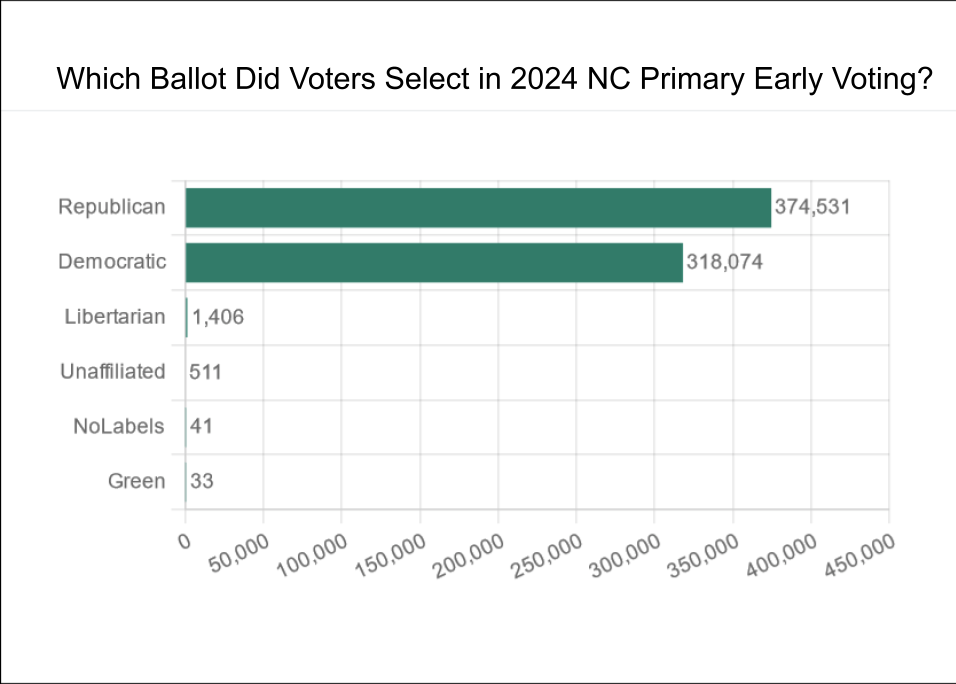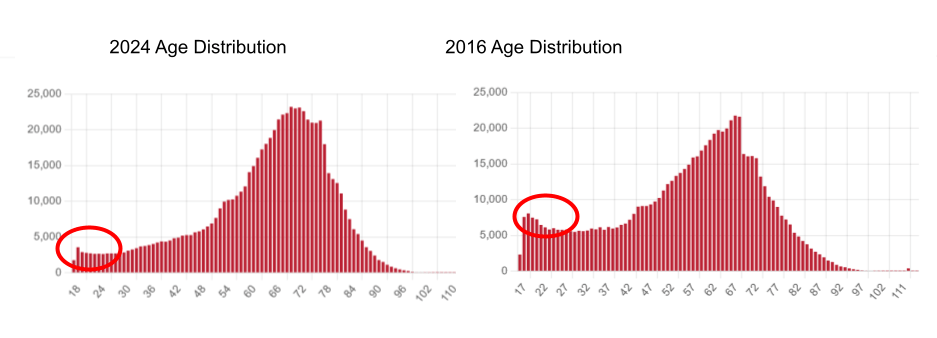In the 2024 North Carolina Primary, 694,000 people voted early, for a voting rate of 9.5%. The question is, who voted early?
Around 35% of them are Republicans, 35% Democrats, and 28% unaffiliated (and 0.1% libertarian, we see you down there). This roughly follows the 33-33-33 split of state demographics.

What is interesting, however, is the ballots people are requesting— 54% of people requested a Republican ballot, compared to 46% Democrat.

This is striking compared to 2020, when 65% of ballots requested were for Democrats, or 2016, when 55% of ballots were for Democrats.
Why is this?
The key question is whether this is people who would not have voted before, or if it is voters who would have voted Democrat in past cycles, but chose to vote in the Republican Primary.
The evidence for this is mixed — first, Democratic stronghold districts, such as House District 56, covering much of Chapel Hill, underperformed. In the 2020 and 2016 primaries House District 56 was a top turnout house district, while in 2024 it isn’t even in the top 25.
Much of the variations I suspect boils down to the fact that while Republicans have multiple choices at the Presidential level, the Democrats have Biden, or abstaining from Biden. This may drive unaffiliated voters to vote in the Republican primary, where they perceive they have more of a say, or simply not vote in the primary at all.
This has led to many young people not voting early:

The racial demographics are also slightly whiter in 2024, with there being a few percentage points more white voters than Black voters compared to 2016 and 2020.
What are the implications of this?
It is possible that more moderate voters will vote in the Republican primary and vote for more moderate candidates, giving them an edge in the primaries.
School Boards may be particularly impacted, with around half of the school boards in the state having partisan elections, which may lead to fringe groups such as Moms for Liberty getting beaten out in some primaries.
Another possible implication is that the numbers show a genuine increase in Republican interest in North Carolina, and this will continue to the general election.
Nevertheless, voting isn’t over, and Super Tuesday voters will change these results.
